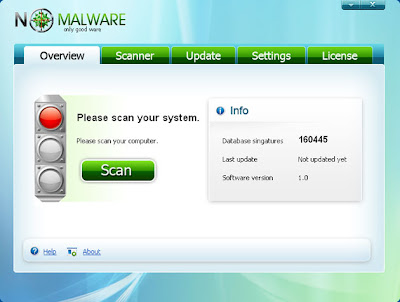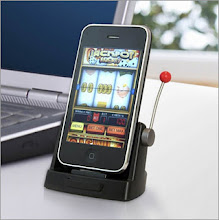Not all of the programs that promise protection against viruses and other nasties have your best interests at heart. Some of them are actually Trojan horses—programs that pretend to be useful but actually do harm in the end. Others simply ape the real security software and try to scare you into paying money to clean up problems that don't really exist. For that reason they're often called scareware.
This is a growing problem, and it's your fault. If absolutely nobody registered these programs the bad guys wouldn't be able to keep going. They'd find some other scam. As it is, plenty of people shell out $69.99 to register these frauds. It's not a Madoff-level scam, but some of them are doing so well they even offer tech support. No kidding! The first they're likely to tell you is "First, remove any existing security software…"
These rogue programs may copy user interface elements from real programs; the multi-color Windows security shield is especially popular. They often use names that sound similar to the real programs that you've heard of. Just a year ago poor grammar and spelling often blew their cover, but those currently active are much more refined.
How can you avoid getting scammed? If a security program that you never installed pops up with a dire warning, that's a clue that you've been scammed. If it's really, really hard to close the program or get out of the registration process, there's another clue. The biggest giveaway is often their incredibly fast virus scanning. Since there's no real scanning going on the programmers can make it as fast as they want.
Before you consider paying money for any security program, check for reviews on reputable sites
Just Like the Real Thing
This rogue calls itself "NoMalware" and sports a really simple user interface. Until recently it might have seemed too simple, but some mainstream vendors are trending toward this kind of minimalist interface.
This rogue calls itself "NoMalware" and sports a really simple user interface. Until recently it might have seemed too simple, but some mainstream vendors are trending toward this kind of minimalist interface.
Even More Realistic
Ever heard of "Adware Pro"? Well, it sounds a bit familiar, doesn't it? And it has the expected buttons for quick scan, full scan, scheduling, and so on.
Ever heard of "Adware Pro"? Well, it sounds a bit familiar, doesn't it? And it has the expected buttons for quick scan, full scan, scheduling, and so on.
Mega Rogue
If this product actually did all the things its main screen seems to promise, it would be quite a tool. As it is, the most important message on the screen is "License error" in the top left. The other features are in "scare only" mode until you take care of that by giving them your money.
If this product actually did all the things its main screen seems to promise, it would be quite a tool. As it is, the most important message on the screen is "License error" in the top left. The other features are in "scare only" mode until you take care of that by giving them your money.
Update Needed
Real antivirus programs need to keep their databases up to date, so the rogues imitate this necessity.
Real antivirus programs need to keep their databases up to date, so the rogues imitate this necessity.
Covering Up Real Protection
Some rogues go so far as to actively cover up legitimate security software. The "Protecting the irreplaceable" motto visible at the bottom of the hidden window identifies it as F-Secure Anti-Virus 2011 getting ready to wipe out this rogue.
Some rogues go so far as to actively cover up legitimate security software. The "Protecting the irreplaceable" motto visible at the bottom of the hidden window identifies it as F-Secure Anti-Virus 2011 getting ready to wipe out this rogue.
Ordinary Installation
Some rogues slip onto your system as a drive-by download; the first thing you notice is a warning and a bid for money. Others include totally real, ordinary installation programs like this one.
Register to Clean
Any rogue will quickly offer you a list of the horrible problems infesting your computer. The scan is free, but fixing the alleged problems will cost you.
Elaborate Registration
The registration process for some rogues gets seriously elaborate. The malefactors really, really want you to connect with their web site so they can wheedle you into giving them your credit card information.
Yes or No?
Just to better their chances of getting you to at least connect with the registration server some rogues mix things up. One time "yes" will mean register, another time it will mean continue without registering.
Getting Tough
This particular rogue thoroughly takes over your system. It runs before Windows and keeps the desktop from loading until you register... or figure out which configuration settings will let you escape.
Rare Grammatical Error
Though they used to be common in scareware, grammatical errors like "Are you really want to quit?" are rarely found these days.
Warning Balloon
This balloon-style alert is almost indistinguishable from a Windows-generated security alert. The fact that it's trying to herd you toward registration is a clue that it didn't come from Windows.
Scary Scan Results
This list of found viruses with cryptic names doesn't look much different from the scan results page of a real antivirus. Even a security expert can't keep up with all the names, so there's nothing obvious to say this is fake.
Over the Top
Some warnings go a bit over the top. "Unknown software is trying to take over your system"? It sounds like something from a bad movie.
Invoking Microsoft
This big warning about an unauthorized connection doesn't look so different from the warnings popped up by many firewalls. Its verisimilitude is enhanced by the official-looking Microsoft logo and Windows license key information.
Protect System Address Space
Having an unidentified program access system address space certainly sounds like a bad thing, but if you try to enable protection you'll go right to the registration department.
Upgrade Invitation
This warning offers a carrot and a stick. By registering you'll get a (fake) cleanup of (fake) threats and also an upgrade with free daily updates.
Honesty!
Every now and then, you may run across a rogue product that doesn't even bother to conceal its fraudulent nature. If you read the fine print, this one says it's just a dramatization.
Some rogues slip onto your system as a drive-by download; the first thing you notice is a warning and a bid for money. Others include totally real, ordinary installation programs like this one.
Register to Clean
Any rogue will quickly offer you a list of the horrible problems infesting your computer. The scan is free, but fixing the alleged problems will cost you.
Elaborate Registration
The registration process for some rogues gets seriously elaborate. The malefactors really, really want you to connect with their web site so they can wheedle you into giving them your credit card information.
Yes or No?
Just to better their chances of getting you to at least connect with the registration server some rogues mix things up. One time "yes" will mean register, another time it will mean continue without registering.
Getting Tough
This particular rogue thoroughly takes over your system. It runs before Windows and keeps the desktop from loading until you register... or figure out which configuration settings will let you escape.
Rare Grammatical Error
Though they used to be common in scareware, grammatical errors like "Are you really want to quit?" are rarely found these days.
Warning Balloon
This balloon-style alert is almost indistinguishable from a Windows-generated security alert. The fact that it's trying to herd you toward registration is a clue that it didn't come from Windows.
Scary Scan Results
This list of found viruses with cryptic names doesn't look much different from the scan results page of a real antivirus. Even a security expert can't keep up with all the names, so there's nothing obvious to say this is fake.
Over the Top
Some warnings go a bit over the top. "Unknown software is trying to take over your system"? It sounds like something from a bad movie.
Invoking Microsoft
This big warning about an unauthorized connection doesn't look so different from the warnings popped up by many firewalls. Its verisimilitude is enhanced by the official-looking Microsoft logo and Windows license key information.
Protect System Address Space
Having an unidentified program access system address space certainly sounds like a bad thing, but if you try to enable protection you'll go right to the registration department.
Upgrade Invitation
This warning offers a carrot and a stick. By registering you'll get a (fake) cleanup of (fake) threats and also an upgrade with free daily updates.
Honesty!
Every now and then, you may run across a rogue product that doesn't even bother to conceal its fraudulent nature. If you read the fine print, this one says it's just a dramatization.


































0 comments:
Post a Comment